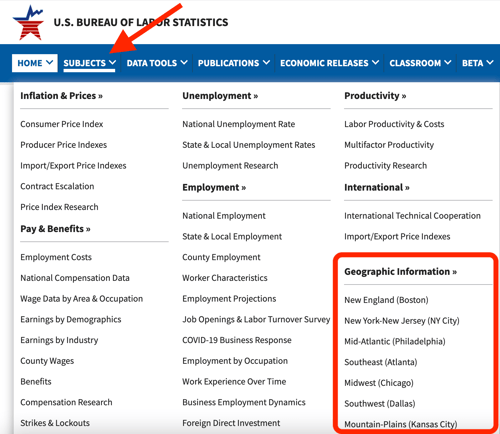The nature of product marketing is constantly evolving. Campaign marketers chase new channels each year, content marketers adopt new content mediums; the phenomenon of change isn’t unique to product marketing. However, the changes product marketers face are more foundational.
Product marketing is a multi-faceted discipline that interacts with nearly every other department in an organization. As such, it is uniquely impacted by broader shifts in how organizations bring products to market. With the approach of a new year, thought leaders across industries are waxing philosophical about the cutting edge strategies, trends, and technologies that will take root in 2021.
The specifics of these predictions vary, but they all share something in common: they’re nebulous in nature and exist at the nexus of multiple business functions. In other words, they live in the hazy sweet spot where product marketing thrives. Three of these broad predictions in particular have the potential to shake up the nature of product marketing in a positive way. For those eager to extend the reach and impact of their role, 2021 will provide no shortage of opportunities.
Competition Heats Up
Identifying a gap in a market and building a business to fill it has never been easier than it is right now. Positive macroeconomic trends and the relatively free flow of capital from investors makes it easier than ever to bring an idea to reality. Software previously only available to category leaders (marketing automation, ERPs, etc.) is increasingly affordable and available to help new organizations flourish. The result of all of these trends? Nearly every industry is getting more competitive.
Every year, we survey 1000+ professionals across industries whose responsibilities include competitive intelligence to some extent. This year, 84% shared that their industry has become more competitive relative to the previous three years. Our research for next year’s edition is well underway right now, and while we can’t speak to specifics yet, we can confidently say that trend is not slowing down.
Product marketers should latch onto this. When markets become crowded and buyers crave differentiated buying experiences, the ability to effectively position your product becomes critical. Marketing campaigns need to stand out with a unique message. Product management will benefit more than ever from understanding the product development strategies of the competition. If executive leadership isn’t already asking for competitive landscape summaries, expect those requests to surface soon.
To take advantage of this trend, ensure you have a strong understanding of your market and how it’s evolving. Competitive enablement materials like battlecards and competitor matrices will become more valuable than ever. Consider creating regular, high-level competitive updates for executive leadership as well as tactical assets for sales and marketing. All of these materials are highly visible and result in tangible impact on quantifiable business metrics.
The Sales Enablement Insurgency
Sales enablement is experiencing something of a metamorphosis. Much like product marketing, it is a function that has historically been poorly-defined. Often, sales enablement responsibilities fall squarely into the laps of product marketers. Just as often, sales enablement is a distinct team reporting to the sales organization. Forrester believes this reality is about to shift. In one of their prediction articles, Forrester states that sales enablement will change in two ways.
First, it will expand in scope. As competition across industries heats up and companies struggle to differentiate, empowering individual salespeople with better sales skills, collateral, and industry knowledge has become critical. Executive leadership increasingly recognizes the value in improving key sales metrics like average contract value and competitive win rate. Given a sales team of adequate size, even nominal improvements in those metrics translate to noteworthy revenue gains.
Second, as its scope expands, Forrester believes sales enablement will increasingly become a function of the marketing organization. If such a prediction becomes reality, sales enablement and product marketing stand to become much closer partners in crime. The two functions may even blend together into one function in some ways.
These shifts are good news for product marketers looking to expand their impact. Working closely with sales means directly impacting revenue. Competitor battlecards, industry analyses, case studies - these are all incredibly valuable assets that should be prioritized but often aren’t due to lack of bandwidth. So how are product marketers supposed to make time for an increased focus on sales enablement activities?
Technology.
The Rise of the Machine
While we might be a long way away from sentient robots taking over, Artificial Intelligence (AI) and Machine Learning (ML) developments are becoming less of an interesting trend and more of a practical necessity. Gartner discusses the rising role of automation in their Strategic Technology Trends for 2020 in a number of contexts. The underlying theme is that AI/ML-driven automation is becoming table stakes in most business functions.
Product marketers have traditionally been less reliant on technology-driven automation than the rest of their marketing peers. The changing nature of product marketing and the evolution of solutions available to product marketers is changing that notion. Forrester recently completed its first-ever evaluation of market and competitive intelligence solutions. In that evaluation, effectiveness of AI/ML capabilities was one of their most important evaluation criteria. AI/ML capabilities were also key when Forrester evaluated Sales Enablement Automation platforms last year.
Those are two examples of technologies that were neither necessary nor available to product marketers a few years ago. Now, they’re quickly becoming a necessity in response to the convergence of market trends that are changing the nature of product marketing. Product marketers have more on their plates than ever. Much like every other business function that has changed in recent years, technology is part of the solution. Those who embrace AI/ML-driven technology will find themselves valuable additions to product marketing teams in 2021.

Related Blog Posts
Popular Posts
-
 How to Create a Competitive Matrix (Step-by-Step Guide With Examples + Free Templates)
How to Create a Competitive Matrix (Step-by-Step Guide With Examples + Free Templates)
-
 Sales Battlecards 101: How to Help Your Sellers Leave the Competition In the Dust
Sales Battlecards 101: How to Help Your Sellers Leave the Competition In the Dust
-
 The 8 Free Market Research Tools and Resources You Need to Know
The 8 Free Market Research Tools and Resources You Need to Know
-
 6 Competitive Advantage Examples From the Real World
6 Competitive Advantage Examples From the Real World
-
 How to Measure Product Launch Success: 12 KPIs You Should Be Tracking
How to Measure Product Launch Success: 12 KPIs You Should Be Tracking





